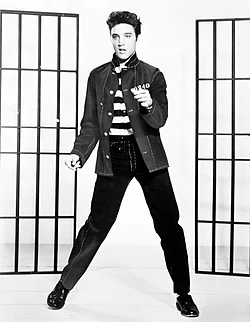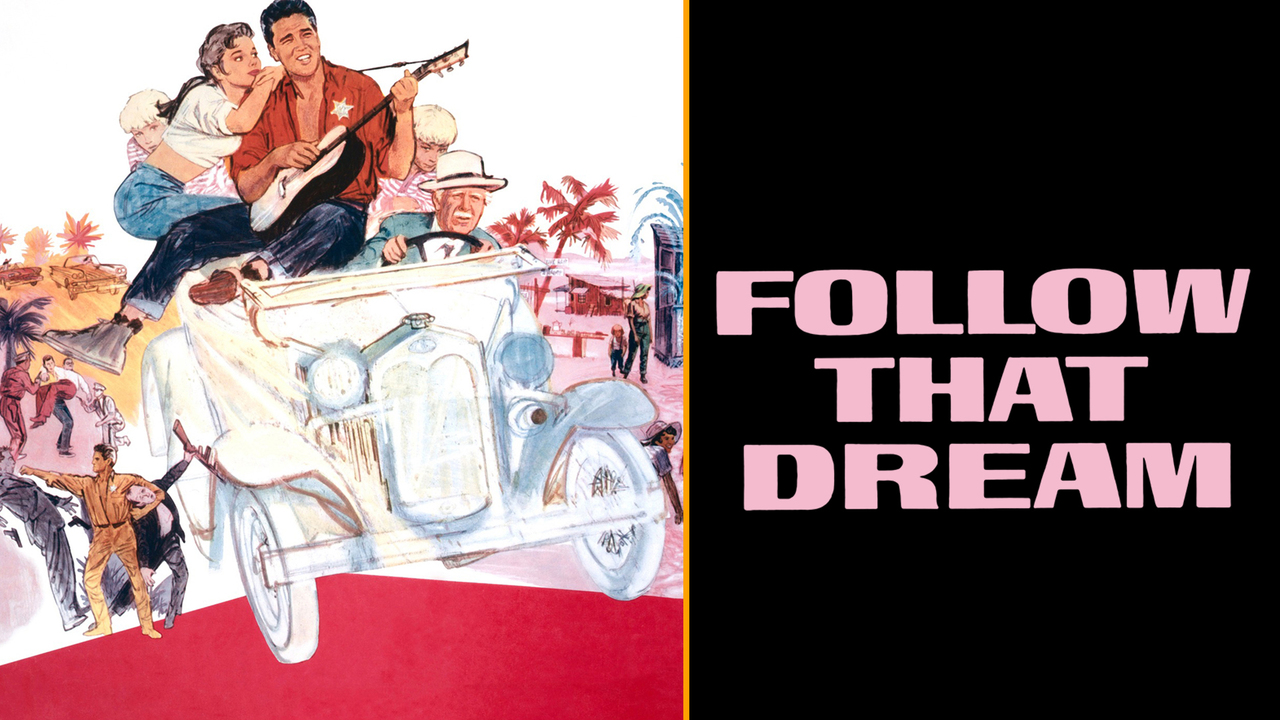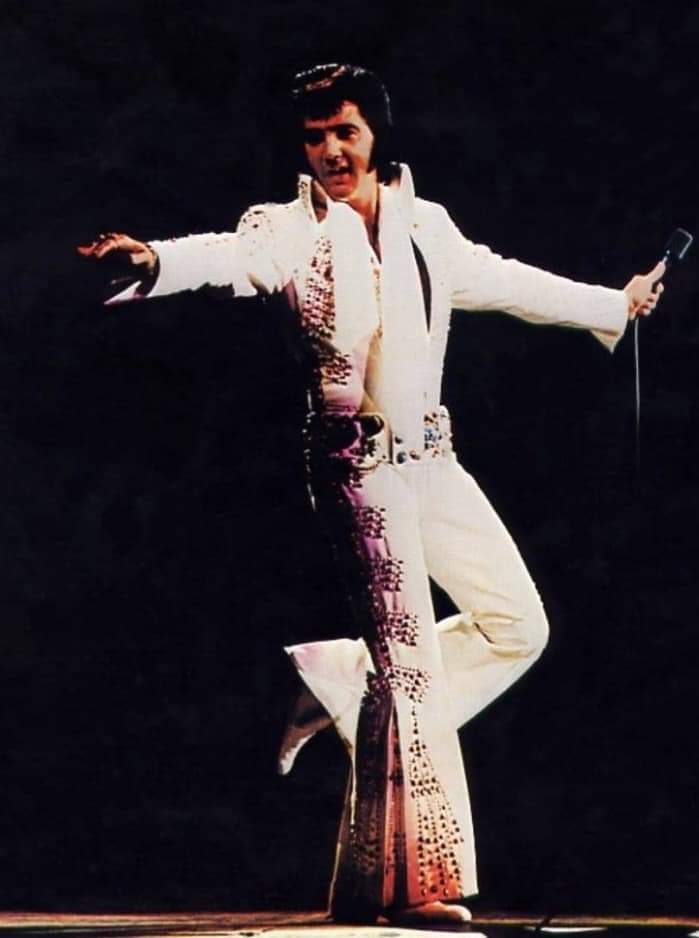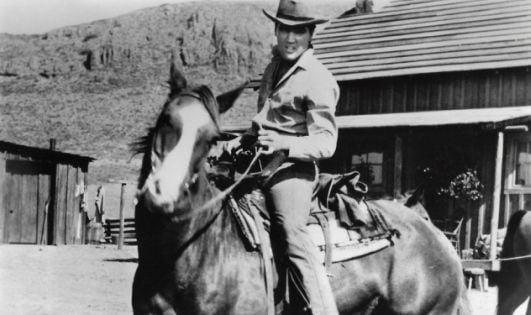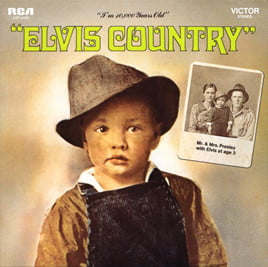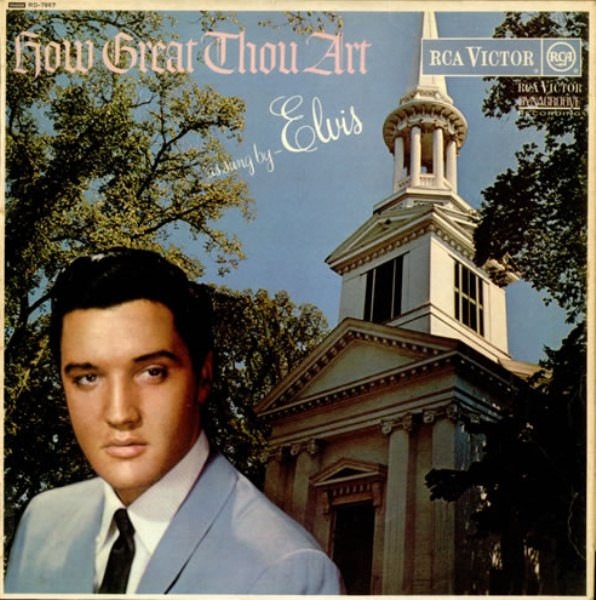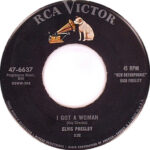FOLLOW THAT DREAM
– from Hawaiian paradise to the sunny shores of Florida
(Part 1)
“Follow That Dream“… Reviewing the next, ninth film starring Elvis Presley right after its release, Bosley Crowther (or Francis Bosley Crowther Jr., for that was his full name) of The New York Times said: “Judging from this laboriously made, simple spectacle about ordinary people, one might get the impression that someone has finally realized that Presley’s films have become too polished lately . * In any case, compared with yesterday’s cornbread from United Artist, ‘Blue Hawaii’ was caviar to connoisseurs .”
In reality, the film Follow That Dream, shot in the summer of 1961, was a far cry from the famous singer’s previous productions. This seemingly trivial, naive comedy not only contained a few truly funny and memorable scenes, but for many attentive viewers it also turned out to be a skillfully executed satire of the political situation in the United States at the time.
What A Wonderful World
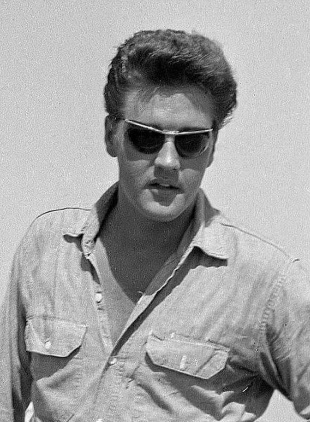
The script for the film, which began filming in mid-July 1961 (a little over a month after completing work on Blue Hawaii), was based on the bestselling novel Pioneer, Go Home! by Richard P. Powell. Born in November 1908, the American writer gained the most fame for his 1956 novel The Philadelphian. “A moving saga of a family with humble roots climbing the social ladder of Philadelphia ,” as the publisher promoted it years later, and which Warner Bros. brought to the big screen as The Young Philadelphians just three years after its premiere.
The film, starring such stars of the time as Paul Newman, Robert Vaughn and Barbara Rush, hit the screens of American cinemas in the late 1950s and after the first week of its premiere, it was ranked second in the most popular productions in the US. Right after the famous “Some Like It Hot” with Marilyn Monroe, Tony Curtis and Jack Lemmon in the main roles. The legal drama directed by Vincent Sherman also received several nominations for the most prestigious awards in the entire film industry. Three for the Oscar – for best cinematography, costumes and best supporting actor for Robert Vaughn and one nomination for the Golden Globe. Also for supporting actor for Robert Vaughn.
After the huge success of the film, and earlier the book itself, which spent over half a year on the bestseller list, many people expected that in his next novel Powell would once again deal with the legal issues, life of high society and political intrigue raised in “The Philadelphian”. Meanwhile, to everyone’s surprise, the author presented his readers with a completely different proposition. “You know, after ‘The Philadelphian’ was released, everyone thought that now (dad, author’s note) he would write something like ‘Philadelphian II’ “, said in an interview with BookThink, the author’s daughter – Dorothy Powell Quigley. ”
Instead, he wrote and published a completely humorous novel ‘Pioneer, Go Home!’ which was later based on a movie with Elvis Presley “.
The heroes of his new novel, published by Charles Sribner’s Sons in 1959, Powell made this time the six-member Kwimper family from Cranberry County, New Jersey, who run out of gas on their way to vacation. To make matters worse, the driver, Papa Kwimper, misses the road and turns straight onto an unfinished and not yet officially opened highway, along which no gas station, no house, or any other place where travelers could replenish their gas supplies has been built yet.
Having no other choice, the Kwimpers park their car on the side of the road and, waiting for help, settle on a nearby beach. They build a makeshift hut there and begin to lead a quiet, idyllic life far from all bureaucracy and social welfare, whose biggest opponent turns out to be the family’s elder (incidentally, he has been at the mercy of various government social programs throughout his life. Starting with a pension for his son Toby, to a care allowance for his two adopted twins, Eddy and Teddy).
However, news of the settlers spreads very quickly around the area and soon reaches local officials, who are very upset about the Kwimpers’ presence. Especially a few days before the grand opening ceremony of the street.
Therefore, they decide to get rid of the unwanted guests at all costs. To their surprise, however, they encounter resistance from Papa Kwimper, who, after another clash with the authorities, not only decides to settle on the beach permanently but also intends to prove to them that he is legally occupying the above lands. To this end, he refers to the old principle of homestanding, dating back to the 19th century. This is a lifestyle based on self-sufficiency (which in practice meant, among other things, giving up the rights to all received benefits in favor of a peaceful life on “one’s own account”, i.e. guaranteeing oneself the means of living, food, employment, etc.).
And when it finally seems that the Kwimpers have won the battle with the heartless bureaucratic machine, new troubles unexpectedly appear on their path. The settler family, who have so far fought only with local politicians, must face the local mafia and oppose the activities of an illegal casino opened by its members.
In the blurb promoting the first edition of the book, the publisher of Pioneer, Go Home! noted: ” Some readers may see in this comedy a little man versus big government. Or they may see it as a study of the classic pioneer spirit and its chances for survival in modern America .”
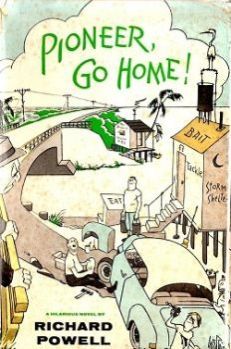
Interestingly, the story described in Powell’s novel was not just pure literary fiction. The author was inspired to describe it by real events that took place in Florida in the late 1920s. Specifically, in 1927, when the state authorities began work on building the first wooden bridge connecting the mainland with Pine Island (until then, access to the island had been possible only by sea).
After moving to Fort Myers, Florida (right after the end of World War II), Powell learned that while dredging the seabed to build a ferry, workers had accidentally created a small area of ??excavated soil that had not yet appeared on any maps. Several settlers decided to take advantage of this situation, building makeshift huts on the land and starting a business. Mainly fishing. Eventually, the state granted them property titles, and the community they founded is still in operation today. It is known as Matlacha, a small fishing village measuring just over a square mile (1.73 square kilometers to be exact), which, according to the last census (from 2020), is inhabited by five hundred and ninety-eight people.
The action of Powell’s book takes place in the fictional town of Columbiana, which resembles Florida from the description. The events presented in the film with Presley’s participation take place in Florida. And this is basically the only serious deviation from the literary original that Charles Davis Lederer made when writing the script. A valued American director and screenwriter (he was also a member of the so-called Algonquin Round Table, i.e. a group of New York writers, critics and satirists who met in the Algonquin Hotel in the 1920s and 1930s), whose extremely rich portfolio included such film hits as “Gentlemen Prefer Blondes” starring Marilyn Monroe, “Ocean’s 11” (the original version from 1960 with Frank Sinatra, Dean Martin and Sammy Davis Jr in the main roles) and the legendary “Bount on the Bounty” with Marlon Brando as the first lieutenant, Fletcher Christian.
Speaking of the script, it is worth adding that according to some sources, it was not initially created with Presley in mind. In fact, the famous singer was not even considered until Walter Mirisch, a successful and award-winning producer from United Artists, stated during one of the meetings that ” this is simply perfect material for Elvis .”
- The review literally used the phrase “too glossy,” which can be explained by the fact that Presley’s films were becoming more and more refined visually – they were too “polished” and “glossy.” They increasingly resembled postcards from beautiful places using increasingly weaker scripts.
- Walter Mirisch received, among others, an Oscar for producing the drama “In the Heat of the Night” from 1967 and the titles of “Best Producer of the Year” awarded to him by, among others, the Producer’s Guild Of America (in 1967), the National Association of Theatre (in 1972) and ShowRama (in 1975)
Article written and provided by Mariusz Ogieglo, EP Promised Land (Poland). http://www.elvispromisedland.pl/

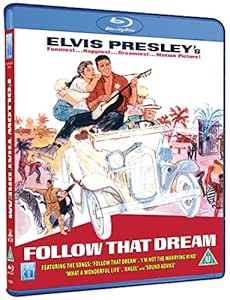
Click on the image to buy
If you want to visit more articles about the life of Elvis Presley, enter the following Elvis Radio 24h link: https://elvisradio24h.com/tag/articles Thanks TCB
